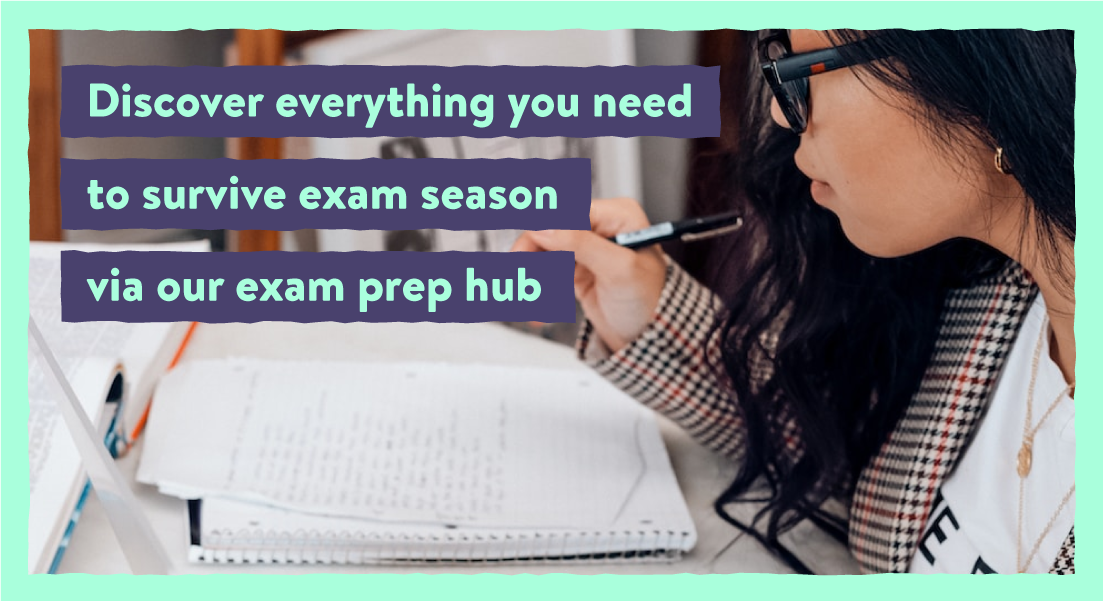As we head into exam season, it’s never been more important to abandon any bad study habits you may be holding onto. Whether it’s your first or last exam period, these pesky study habits can be hard to leave behind. But don’t worry – we’ve put together this list of tips to help you study for success and abandon those negative tendencies.
From study hermit to study socialite
It might seem productive to lock yourself away, totally alone, for hours/days/weeks at a time when it comes to preparing for exams or doing assignments. In theory, cutting yourself off from friends and the outside world means less distraction and greater focus. But, in doing so, it’s likely you will very quickly start to burn out and lose motivation.
You need to give yourself a rest, allow your brain to settle, and ensure you tear yourself away from textbooks at least once a day to re-energise. Skype family and friends back home, catch up with local friends for an afternoon beverage or get your dose of vitamin D by taking a walk at a nearby beach or park.
Tip: If you’re especially wary of taking time off in the days before a test, change your study location or find some friends to revise with.
Ditch procrastination practices
Procrastination can take many forms, including procrasti-eating/-sleeping/-cooking/-cleaning – and no one is immune. Imagine you’re set to go for a day of revision and suddenly you’re overwhelmed with the ‘necessity’ to clean your room or cook a four-course meal. Or, you’ve decided multiple naps and a handful of trips to the local supermarket per day are the best way to keep yourself energised.
While eating well, sleeping a solid 7-8 hours per night, and cooking/cleaning to give yourself a break are important, these shouldn’t be cutting into valuable study time.
To avoid dreaded procrastination, make sure your time is well-managed. For some people, this might involve creating a quick revision timetable. Others may prefer simply setting regular time goals throughout the day with breaks every so often (for example, the popular Pomodoro technique basically involves working for 25 minutes, taking a five-minute break, and repeating throughout the day).
Tip: Should the desire to do menial chores to avoid studying be too overwhelming, go and study at the university library, where you won’t have the temptation (or ability) to cook or clean.
No more racing to the finish line – take it slow and steady
If you’re wondering how to study at uni – or, more accurately, how not to study – there’s one practice to avoid at all costs: cramming. We won’t bore you with the endless research that proves this strategy doesn’t work. Just know that the proof is out there, and it’s time to kick the habit.
Instead, as simple as it sounds, start your revision early. In the weeks leading up to an exam, start going through your work, topic by topic. Even an hour or two of revision a day will help your understanding and knowledge retention. Plus, this gradual studying technique is far less stressful than trying to memorise an entire course’s content 12 hours before a test. Dedicate the last few days leading up to the exam to more intensive revision. This could include doing practice exams, going through flashcards, or finalising your ‘cheat sheets’.
Tip: Try to attend lectures or watch them online as much as possible. More often than not, lecturers will tell you which topics will be covered in an exam. Put an asterisk next to each relevant topic or aggressively highlight that section. That way, you’ll know to spend extra time on those topics when it’s time to study.
Swap out all-nighters for consistent schedules
While it’s sometimes inevitable – but never fun – pulling an all-nighter might mean you’ll hand something in on time, but you’ll sacrifice quality and finesse. Leaving your assignments to the very last second is incredibly taxing. Plus, the mental and physical effects of all-nighters are problematic if you’re pulling them regularly.
Some students work better at night, free from distraction. If that’s you, try to cap your work at a specific hour, to ensure you still get at least some sleep.
If you work better during the day, stay organised. Lecturers and tutors will often tell you when it’s a good time to start assignments, and in the following weeks, they may even let you know what kind of progress you should have made. Update your calendar and stay on top of due dates.
Tip: If you know that a deadline is going to be unachievable, remember that there are university staff who can help you. Whether it’s your lecturer, tutor or even a counsellor, speaking to someone about your concerns can be really valuable. Just make sure you chat to them as far in advance as possible.
Unhealthy study practices to a balanced lifestyle
One exam shouldn’t be the focus of your university career. Your health – both mental and physical – is far more important than any exam or assignment. Studying yourself to absolute exhaustion, maintaining a diet of instant ramen and sitting behind your desk for weeks won’t help when exam time rolls around.
Remember to keep yourself active, eat healthily (to an extent… a study break serving of some classic Australian hot chips never hurts), see your friends, call your family back home, and speak to the right people if you need help. Studying can tough, but it doesn’t have to take its toll. You still need to enjoy your time overseas and balance study time with plenty of fun.
Tip: Most universities are equipped with health services, counselling, student services dedicated to international students, gyms and cafés. These facilities are typically conveniently located, meaning you can visit on your way to or from campus to make sure you’re staying healthy and safe.






